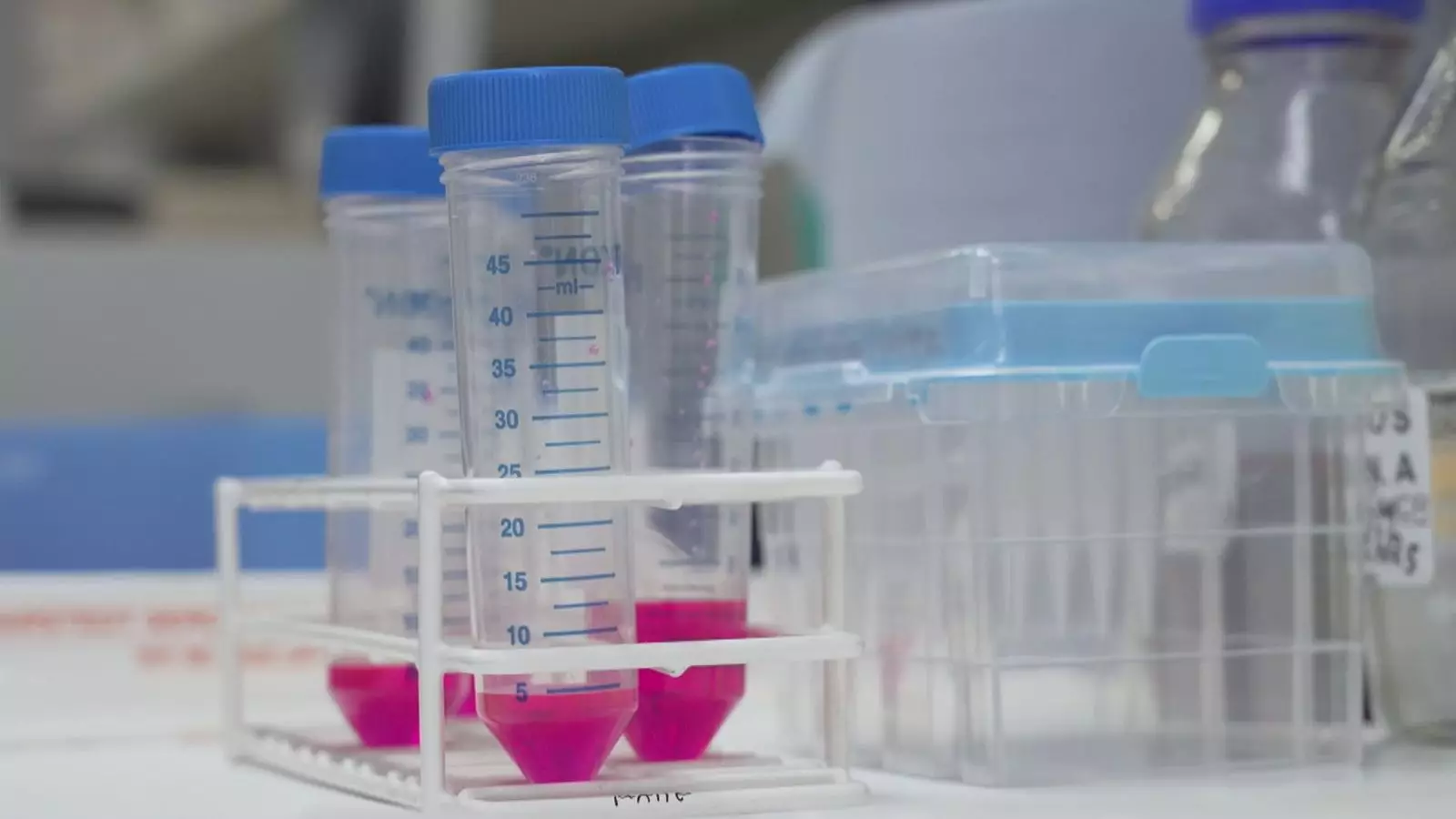In a pivotal moment for breast cancer treatment, a new drug named capivasertib has emerged as a beacon of hope, poised to redefine the approach to managing one of the most challenging forms of cancer. Accessible through the NHS starting today, this medication presents a revolutionary option, particularly for those contending with advanced breast cancer driven by specific genetic mutations. As patients like Elen Hughes have demonstrated, capivasertib is not merely a medical advancement; it symbolizes a profound shift in the way individuals perceive their illness and future.
Elen Hughes, who underwent the trials of this therapy, encapsulates the emotional overlay of living with cancer. Her narrative illuminates the transformational essence of capivasertib—not merely as a drug but as a renewal of life and purpose. She articulates a sentiment shared by many who have faced the grim prognosis of cancer: “I don’t look at myself anymore as a dying person.” This statement underscores the vital psychological and emotional impacts of innovative therapies that extend life and enhance its quality, breaking the shackles of despair that cancer often imposes.
The Science of Survival
Capivasertib’s efficacy lies in its ability to complement existing hormonal therapies, effectively doubling the duration in which treatment can stave off cancer advancement. The scientific oversight of this breakthrough, led by Professor Nicholas Turner, has laid a substantial groundwork, backed by two decades of rigorous research. The acknowledgment of genetic factors, such as mutations in the PIK3CA, AKT1, or PTEN genes, marks a significant progression in personalized medicine—the tailored approach that considers the unique biological makeup of each patient.
This advancement highlights an urgent need for improved screening and genetic testing, as noted by Prof. Turner. The notion that hundreds of patients may soon access this drug while thousands more could be identified in the future represents a critical call to action. Cancer treatment cannot solely rely on traditional modalities; it must evolve to incorporate genetic information that allows for more precisely targeted therapies, enhancing effectiveness and minimizing side effects.
A Cultural Shift in Cancer Care
The reception of capivasertib transcends the realm of clinical effectiveness; it incites a cultural transformation within society’s understanding of cancer. Historically, cancer has been viewed predominantly through a lens of fear and inevitability. However, narratives emerging from breakthrough treatments challenge this perspective, framing patients not as victims but as warriors reclaiming agency over their lives. Hughes’ personal testimony serves as a compelling exemplar of this phenomenon. By emphasizing what can be achieved in “six months,” she underscores the importance of time—not just as a metric of survival but as a facilitator of life’s milestones and cherished memories.
The enthusiasm surrounding capivasertib also signals an imperative to view cancer not as a monolith but as a diverse set of diagnoses, each with unique challenges and opportunities for treatment. The shift towards considering individual genetics reveals a deeper understanding of the disease’s complexity, underscoring the need to address cancer on a personalized level. This is a departure from one-size-fits-all strategies that have dominated the landscape for too long.
Challenges on the Horizon
Despite the optimism this development brings, it also highlights the inherent challenges within the healthcare system. The accessibility of capivasertib through the NHS, while commendable, raises critical questions regarding resource allocation, the pace of implementation, and the necessity of ongoing research. It is essential that the NHS mobilizes its resources efficiently to ensure that patients not only receive the treatment but also benefit from comprehensive care that includes emotional, psychological, and logistical support.
Additionally, as capivasertib represents a promising advancement, reliance on breakthrough drugs should not overshadow the pressing need for continuous development of holistic cancer care strategies. The journey of hope and healing requires a multi-faceted approach—integrating advanced therapies with patient-centered care that addresses both physical and emotional health.
As we stand on the cusp of this new era in breast cancer treatment, the introduction of capivasertib offers a clarion call to embrace innovation, prioritize patient lives, and cultivate an atmosphere of hope in the face of what once seemed insurmountable.


Leave a Reply